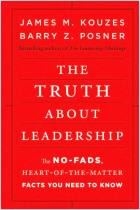
Clarity in Crisis
Leadership Lessons from the CIA
Recommendation
Former CIA operative Marc Polymeropoulo offers more thrills than the usual leadership author. He tells of decades of recruiting and developing spies, running CIA intelligence operations in the Middle East and setting up teams to respond to various dangers. Polymeropoulo describes lessons leaders have learned and mistakes they made in life-or-death situations. Then, he provides principles leaders can follow to prepare for ordinary challenges as well as unexpected crises. Polymeropoulo’s advice is widely applicable, concise and – you’ll be glad to know – unclassified.
Summary
About the Author
Marc Polymeropoulos, one of the CIA’s most decorated field officers, retired from the senior intelligence service after 26 years in operational headquarters and field management assignments.













Comment on this summary